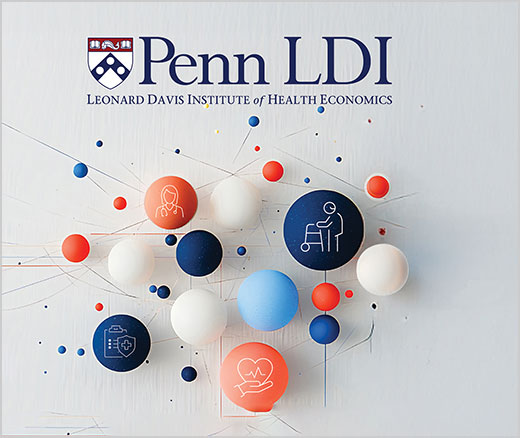
Clinician Nursing Home Caseloads Unrelated to Patient Outcomes
Findings Suggest That Improving Post-Acute Care Means Looking Beyond Caseloads to Nursing Home Quality
Improving Care for Older Adults
Blog Post

Long-term care insurance coverage could increase the economic opportunities for adult children of aging parents by increasing the likelihood that they work full-time.

This is one of the intriguing findings of a new study by LDI Senior Fellow Norma B. Coe and colleagues, which explored the effects of private long-term care insurance (LTCI) coverage on informal long-term care use and expectations, and identified spillover effects of LTCI on the behaviors of their adult children.
The study shows the potential consequences that could result from stabilizing the LTCI market. Policymakers have made repeated efforts to revamp that market, which has long been costly and sparingly used by consumers. But they have had limited success so far, which raises access concerns considering the rising need for long-term care (LTC) in the United States.
By 2050, about 85.7 million Americans will be 65 years of age or older according to the U.S. Census projections—a significant jump from the 58.9 million in 2023. If patterns continue, most of them eventually will require LTC to support their health and daily activities.
Informal, unpaid care plays a fundamental role in current trends in LTC, as it is the most prevalent form of long-term care. It is usually provided by adult children or family members and friends of aging adults, even though the social and opportunity costs are high. For many adult children, the opportunity costs of providing informal care to their aging parents include lost income from having to reduce work hours to accommodate their caregiving.
Formal, paid LTC services are extremely costly, although private LTCI, and other forms of coverage like Medicaid, can help defray these high costs.
The researchers used Health and Retirement Study (HRS) data from 1996 to 2018 to examine the social and economic impacts of private LTCI coverage on aging parents and their adult children.
They found that private LTCI coverage reduced parents’ perceptions of the willingness of their adult children to care for them in the future and that parents with private LTCI were 42% more likely to have all their adult children working full-time. That coverage also lowered the likelihood that adult children were living with their aging parents by 82%.
Together, these findings suggest that LTCI can provide economic benefits to younger generations by enabling them to participate more in the workforce today, regardless of their aging parents’ eventual need for LTC services.
According to Coe, this research is important because “it shows there are potentially economy-wide effects of not having widespread long-term care insurance. Past research has focused on the costs of caregiving once a long-term care episode occurs, but this suggests much wider implications of relying on family and friends as our long-term care delivery system. This is the first time researchers have identified positive spillovers to adult children in areas other than caregiving, and these benefits, such as work participation, occur whether or not a parent ultimately becomes disabled or not.”
Due to the high social and opportunity costs for informal caregivers providing LTC, policymakers need to better understand the economic benefits of LTCI and its impact on adult children’s employment and housing decisions.
To improve LTC systems, investigators suggest that policies should focus on decreasing the high social and opportunity costs of LTC to reduce the burden on family caregivers—either by increasing LTCI coverage, reducing the costs of formal LTC, or providing more support for family caregivers.

The study, “Family Spillovers and Long-Term Care Insurance,” was published on June 12th, 2023, in the Journal of Health Economics. Authors include Norma B. Coe, Gopi Shah Goda, and Courtney Harold Van Houtven.


Findings Suggest That Improving Post-Acute Care Means Looking Beyond Caseloads to Nursing Home Quality

Ongoing Innovations in Diagnostics and Treatments Can Drive Cultural Openness in Discussing Causes, Experiences

New Program Launches Research Initiatives Focused on Improving Primary Care for Older Adults

Home Care May be Hardest Hit, LDI’s Rachel M. Werner Tells Marketplace’s Make Me Smart Podcast

If Federal Support Falls, States May Slash Home- and Community-Based Services — Pushing Vulnerable Americans Into Nursing Homes They Don’t Want or Need

Men are Stepping Up at Home, but Caregiving Still Falls On Women and People of Color LDI Fellow Says